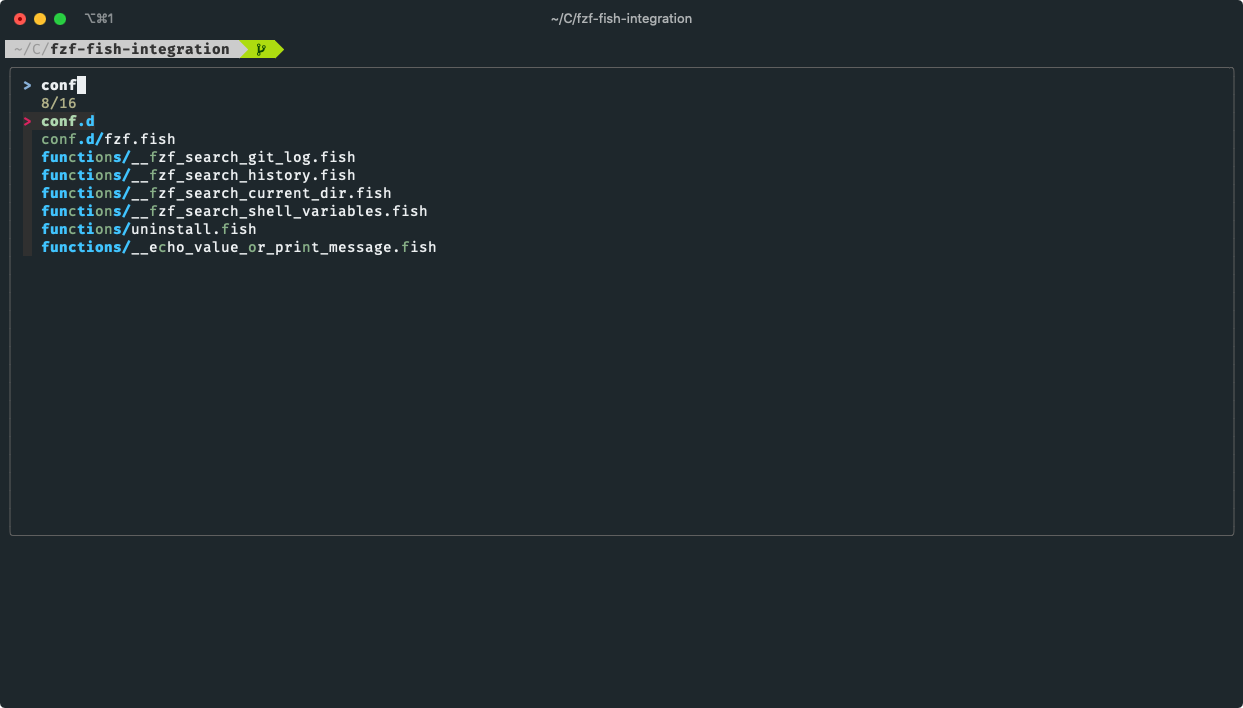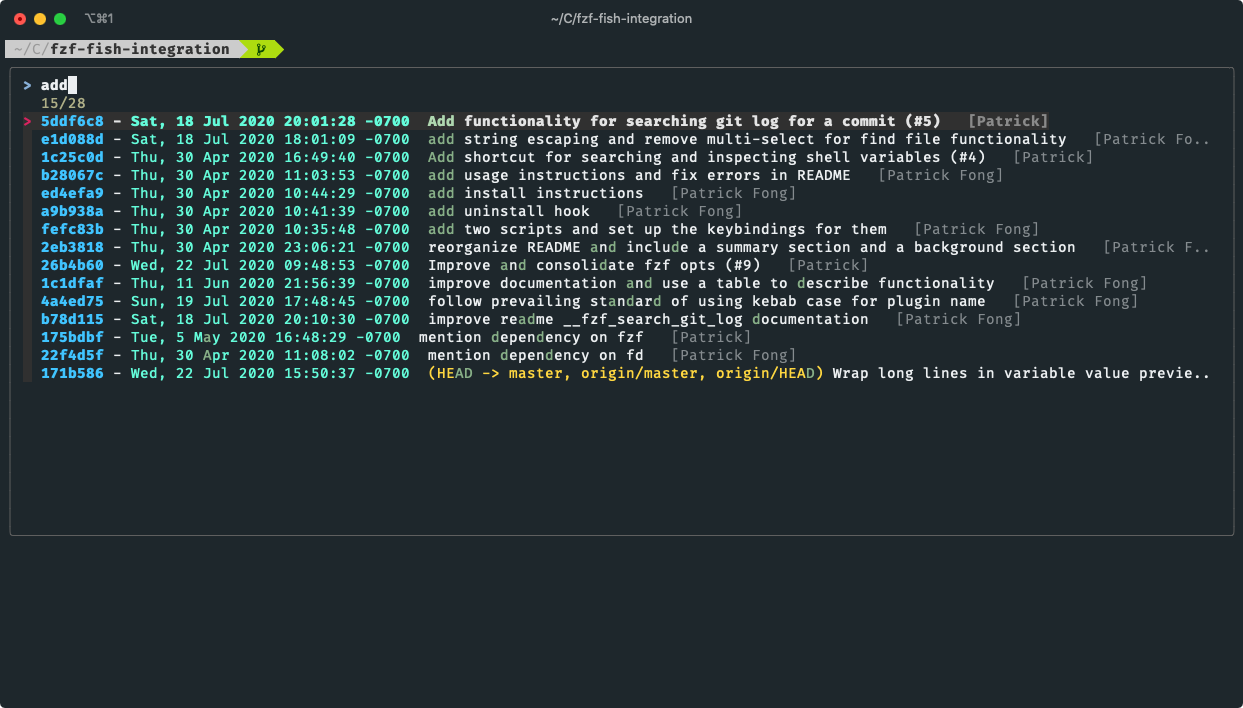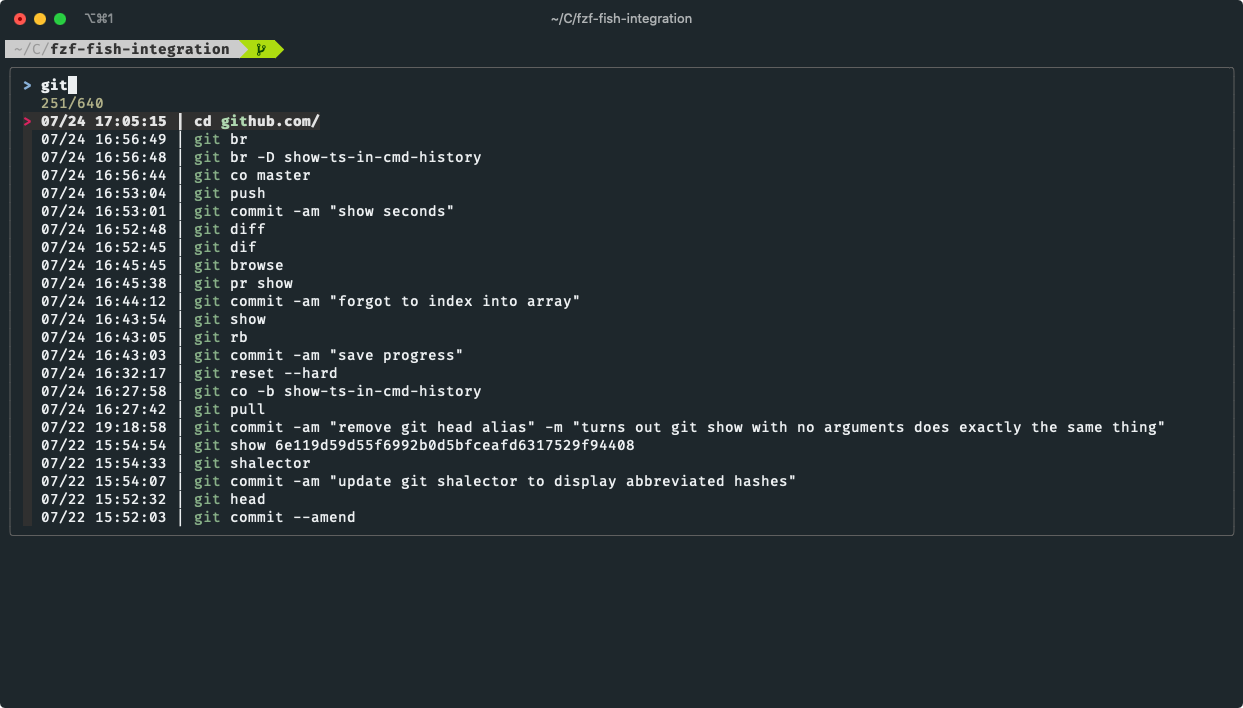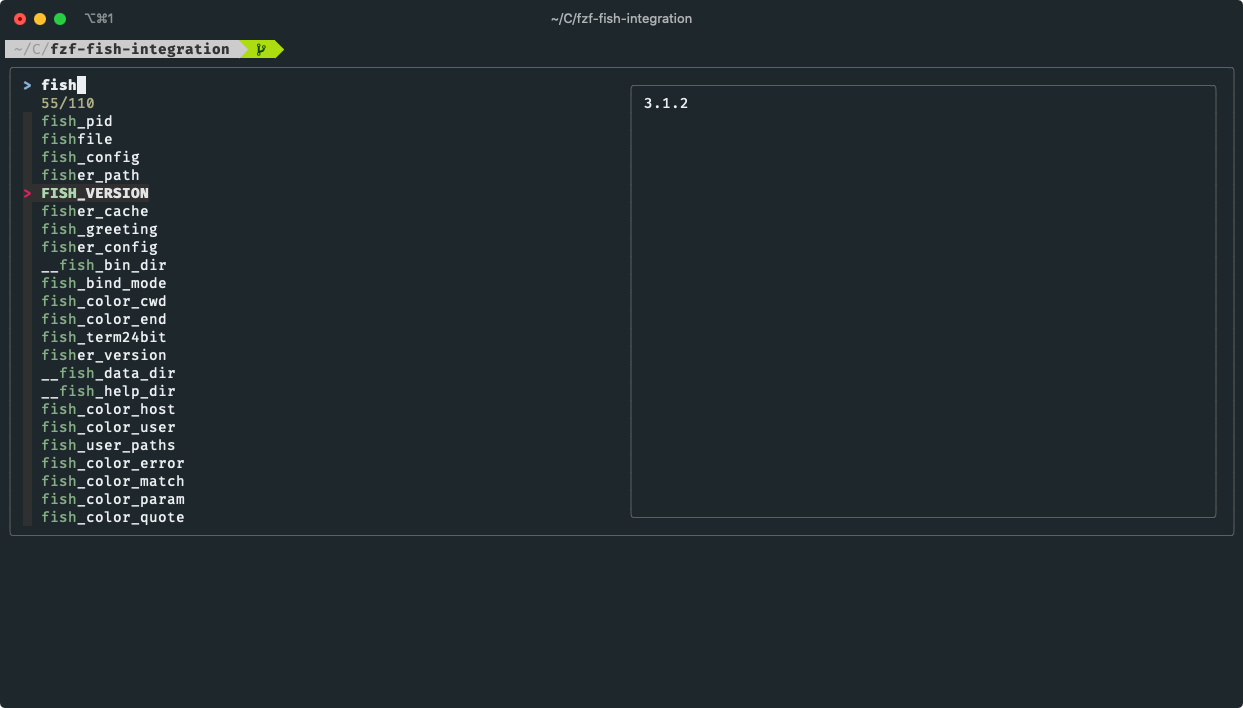fzf-fish-integration
A plugin that integrates fzf into your fish workflow. Comes with handy functions—each with its own mnemonic keybinding—that use fzf to
Search for a file or folder in the current directory -
Ctrl+f(f for file)
Search for a commit in the current git repository's log -
Ctrl+l(l for log)
Search for a command from command history -
Ctrl+r(r for reverse-i-search)
Search for a shell variable (both local and exported) -
Ctrl+v(v for variable)
Installation
With fisher
fisher add patrickf3139/fzf-fish-integration
Or with Oh My Fish
omf install https://github.com/patrickf3139/fzf-fish-integrationIn addition to this plugin, you will also need to install
- fzf, the command-line fuzzy finder that powers this plugin; and
- fd, a much faster and friendlier alternative to the antiquated
findcommand and is used for the file search feature.
If you are on Mac, I recommend installing these two CLI tools using brew.
Configuration
Using custom keybindings
Each function is assigned mnemonic keybindings by default (see screenshots above) in conf.d/fzf.fish. However, if you would like to customize them, you can prevent the default keybindings from executing by setting fzf_fish_custom_keybindings as a universal variable. You can do this by running
set --universal fzf_fish_custom_keybindingsDo not try to set fzf_fish_custom_keybindings in your config.fish because fzf.fish is sourced first on shell startup and so will not see it. Once it is set, you can set up your own keybindings.
Fzf default options
fzf supports setting default options via the FZF_DEFAULT_OPTS environment variable. If it is set, fzf will implicitly prepend its value to the options passed in on every execution, scripted or interactive.
To make fzf's interface friendlier, fzf-fish-integration takes the liberty of setting a sane FZF_DEFAULT_OPTS if it is not already set. See conf.d/fzf.fish for more details. This has the side effect of affecting fzf even outside of this plugin. If you would like to remove this side effect or just want to customize fzf's default options, then set your own FZF_DEFAULT_OPTS universal variable. For example:
set --universal --export FZF_DEFAULT_OPTS --height 50% --margin 1Alternatively, you can override it in your config.fish by adding in something like this:
set --export FZF_DEFAULT_OPTS --height 50% --margin 1Prior art
jethrokuan/fzf is another fzf plugin that provides similar features and is prevalent in the fish community (currently, 467 stargazers and 30 contributors, including me). In fact, I borrowed from it some ideas and snippets of code when first creating this plugin—thank you Jethro!
So why another fzf plugin? While attempting to patch jethrokuan/fzf, I was discouraged by the complexity and inefficiency of the code that resulted from feature cruft (e.g. it provides multiple ways to action on files (find, cd, and open) rather than relying on the user to action the files themselves using the command line) and poor design decisions (e.g. the Tmux support, implemented using a variable command, would have been better done using an alias). Moreover, Jethro seemed to have lost interest in his plugin (he later confirmed to me that he stopped using fish). Wanting a sharper tool and to give back to the community, I decided to write my own plugin.
After much work, fzf-fish-integration now implements most of the same features but is faster, easier to maintain, and more Unix-y. It also includes two new features: using fzf to search git log and to browse shell variables. However, I chose not to implement Tmux support, because users can easily add support externally themselves; and tab completion, because even jethrokuan/fzf's implementation of it is buggy and difficult to maintain as evidenced by the number of issues reported about it.
TLDR: choose fzf-fish-integration over jethrokuan/fzf if you want
- more efficient, faster code
- to run code that is easier to debug in case you encounter issues
- a tool built on Unix philosophy
- a plugin that is more likely to attract future contributors because it is more maintainable
- a plugin that will be more frequently updated by its author (Jethro no longer uses fish)
- fzf integration for searching git log
- fzf integration for browsing shell variables
and you don't mind
- having to integrate fzf with Tmux yourself, which is easy to do
- not having buggy fzf tab completion



